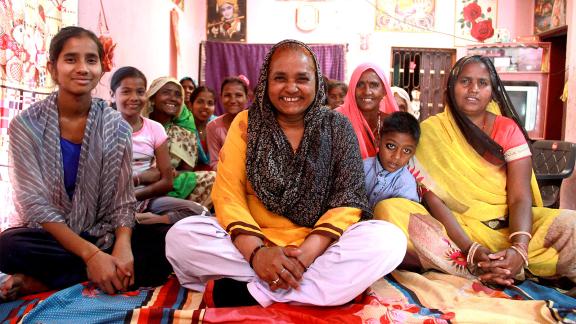IPPF Japan Trust Fund (JTF) invests in community-based sexual and reproductive health (SRH) interventions to improve the SRH outcomes of those most marginalised and excluded. Here are the findings from a qualitative assessment on gender programming of SRH interventions conducted for five JTF projects. The study used the “Gender at Work” framework (genderatwork.org) to 'assess the gender transformative impact of the interventions and generate good programming practices.
Gender at work framework
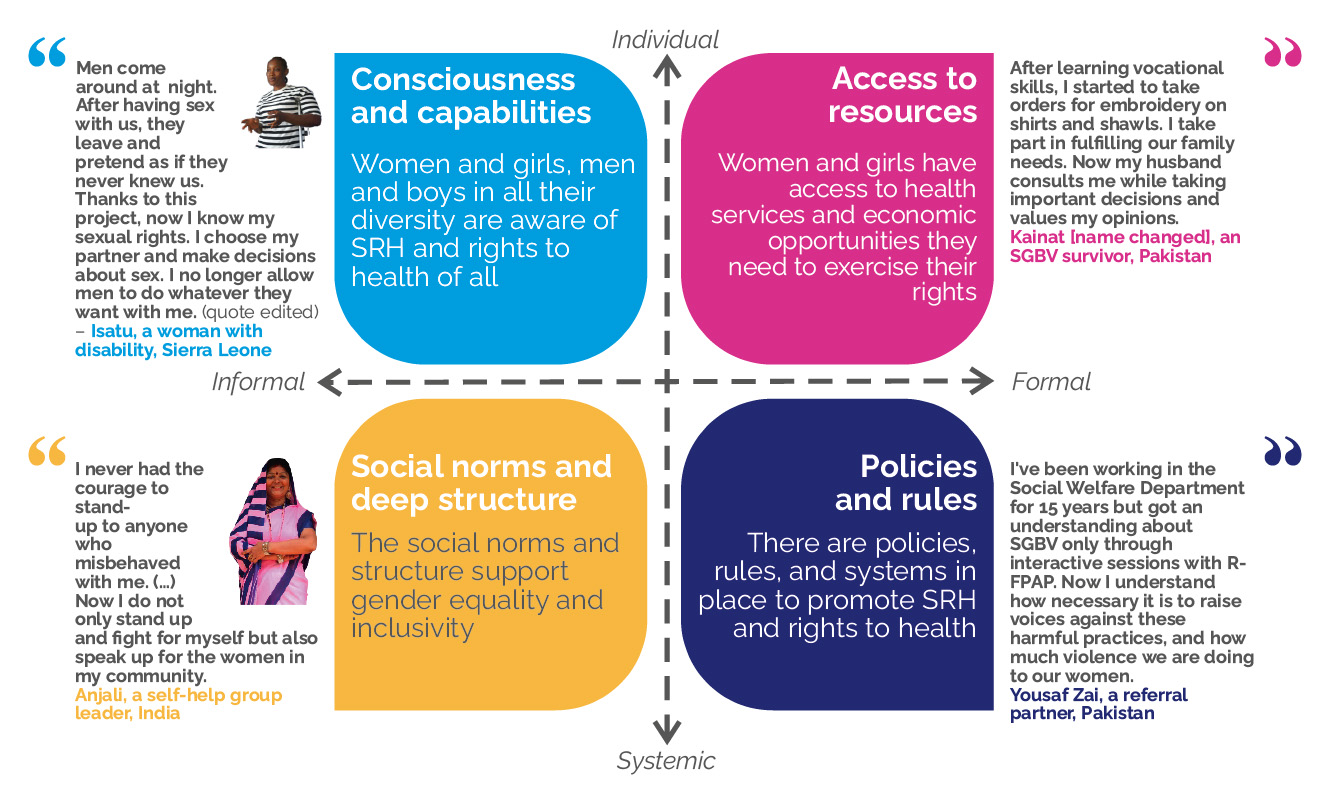
Overall findings
The projects tested context-specific approaches. In the resource poor setting in the desert of Mauritania, the main emphasis was given to improving access of Malian refugees and the host community people to SHR services. In the rural villages of Laos, basic information sessions coupled with access to quality healthcare, with safe space and confidentiality, made a big difference to the communities where the topic of sex was taboo and knowledge about safe sex was poor. In Sierra Leone where poverty and marginalisation pushes women and girls into transactional sex, increased access to information and services enabled beneficiaries to better negotiate for their safety and protection. The projects in India and Pakistan challenged SGBV and harmful gender norms and destabilised the traditional gender dynamics by economically empowering women and girls.
All projects engaged community actions to generate changes in people's views on SRH and their health seeking behaviour. Successful community interventions included word-of-mouth in Laos and Mauritania, establishing community support groups in Pakistan and Sierra Leone, and engaging women leaders in India.
The projects in India and Pakistan demonstrated the importance of women's and girls' income generation to their improved social position and well-being. Interviewees from Sierra Leone and Mauritania advocated that access to economic opportunities were necessary for improved SRH outcomes.
I salute the courage of the community health workers who conduct awareness raising sessions all over this vast camp. Attitudes have changed. Before it was inconceivable that a woman would come to the health facility to ask for contraceptives. People thought it was shameful and against their religion.
A nurse
Mauritania
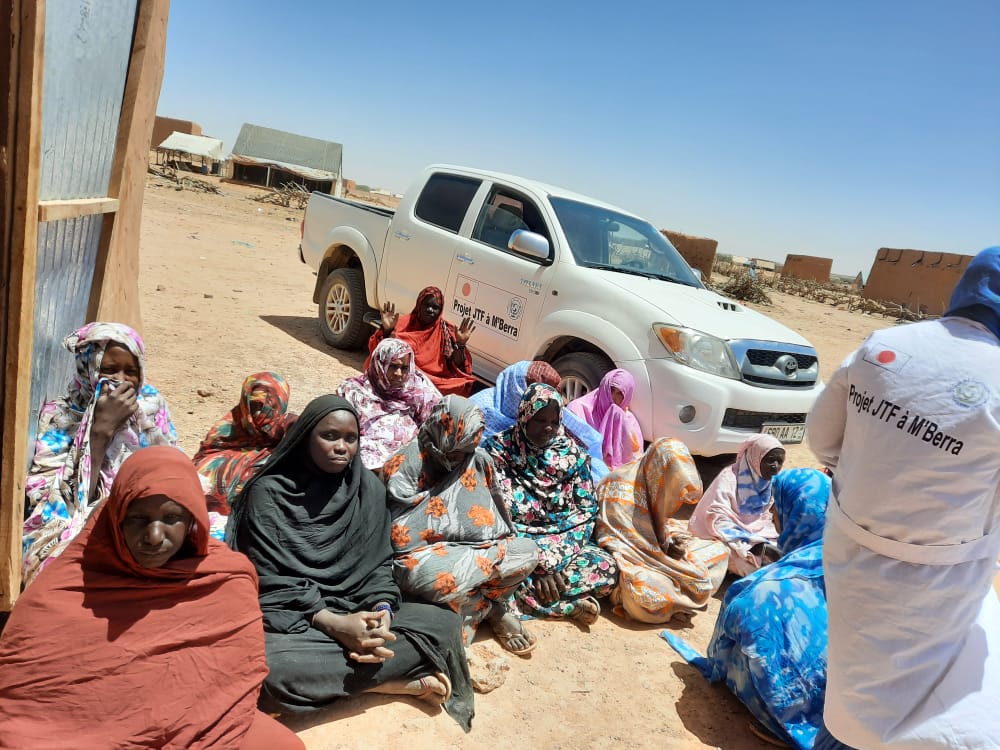
Before, teenagers did not come here for counselling. Now we have a private room at the village health centre for counselling to inform them of how to protect themselves, how to use condoms. (…) now teenagers come to receive more services.
Phetsamai, a nurse
Laos
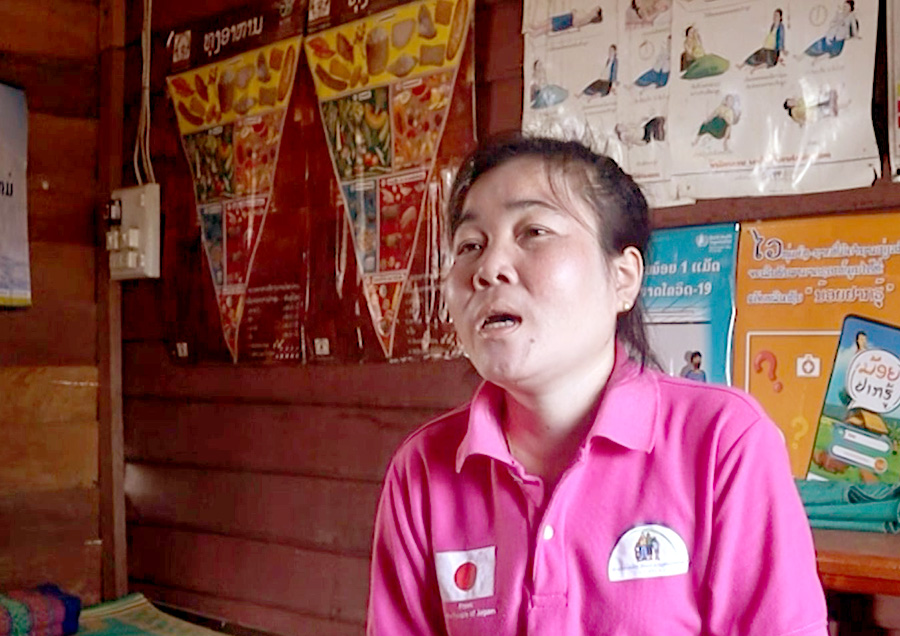
I wanted to have information on how to have safe sex and how to protect myself from HIV and STI. (…) Initially I felt shy to ask about sex, but I decided to ask because it is important. If I am shy then I cannot get the correct information to protect myself.
Noi, a young unmarried women
Laos
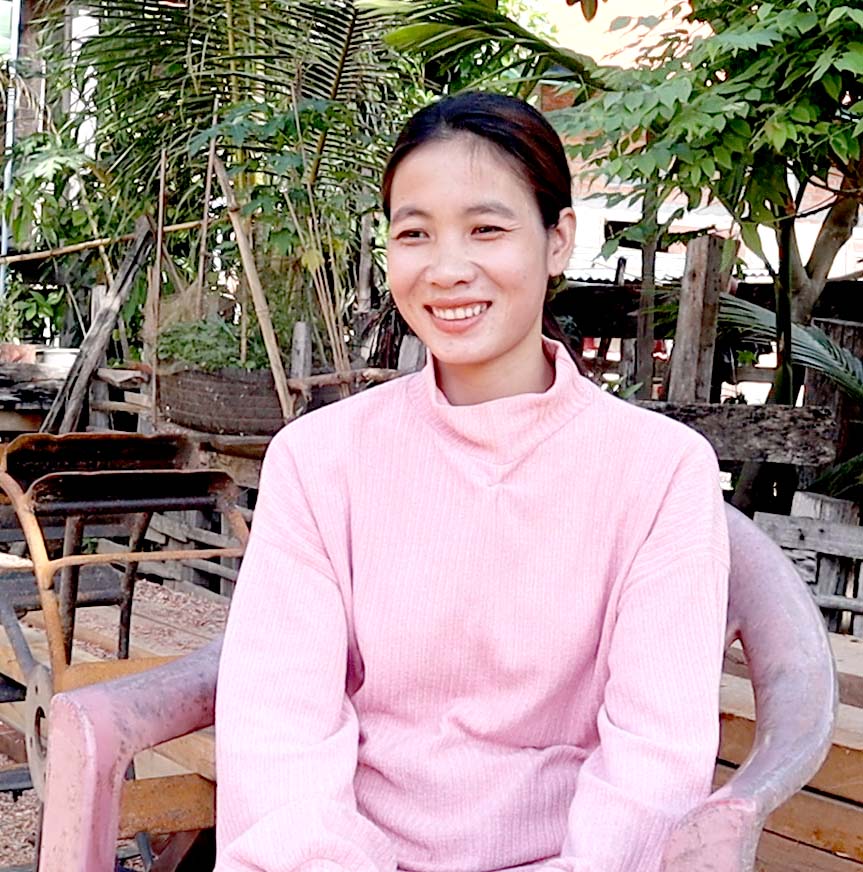
Good programming practices
- Collaborate with trusted entities to gain the confidence of the communities.
- Identify changemakers and organise communities around them.
- Make SRH services accessible and empowering for women and girls.
- Start by talking about the harms of gender inequality and SGBV.
- Involve the whole community in identifying the restrictive and harmful norms.
- Fight stigma and self-blame associated with rape and non-partner sexual relationships.
- Build strong multisectoral collaborative partnerships to address inequalities.
- Create economic opportunities for women and girls, and mutual support mechanism.
- Address violence against girls and young women as a high priority.
- Use the power of mass media to break the silence and advocate for change.
- Build a strong referral mechanism for survivors of SGBV & make violence visible.
Further recommended programming principles
- Be prepared for a long-term commitment as gender transformation takes years or decades to achieve.
- Develop a comprehensive framework, such as theory of change, using a gender transformative approach to influence programme strategy and design.
- Capture what gender-transformative success means and what transformative shifts look like as a learning process across program cycle.
- Engage with the gatekeepers (people in positions of power) to challenge and address social norms.
- Engage with men and boys to embrace positive masculinities and to promote gender equality.
- Engage in meaningful institutional partnerships as they are key to changing policies and laws.
when







